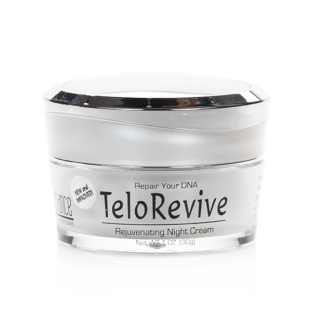
Everyone’s talking about intermittent fasting these days. And I’m pleased to see it’s now entering the mainstream.
Intermittent fasting — or “periodic” fasting, as it’s sometimes called — is one of the most powerful ways to lose weight I know of. It forces your body to burn fat instead of sugar as its main fuel source.
But you’re not getting the full story. Weight loss is only a small part of what intermittent fasting can do for you.
I call it the ultimate diet cure, because you’ve been exposed to bad and unnatural diet advice all your life. You need to get off what isn’t natural and get back to what’s primal.
Intermittent fasting harnesses the power of your Paleo ancestors to keep you lean AND turn back your biological clock.
In today’s article, I’m going to show you how you can regenerate YOUR body with intermittent fasting – and also lose your excess pounds along the way.
You’re also going to learn about the very latest research, which reveals that intermittent fasting boosts production of a special “longevity” hormone — but more about that in a minute.
First, let me explain…
As a species, you evolved in an era when food was scarce. Your Paleo ancestors often went for long periods without food, between successful hunting and gathering expeditions.
And during those “lean” times, their bodies didn’t wither and die. Instead, they thrived and grew stronger. In other words, your body is hardwired to fast.
But you don’t have to go for days without food, as your ancestors must have done. By introducing “lean periods” into your daily routine, you allow your body to regenerate and protect itself at the cellular level — just as your ancestors did.
I’ve seen the same health, regeneration and weight-loss benefits with patients at the Sears Institute for Anti-Aging Medicine. Patients who practice intermittent fasting have reduced body fat, while at the same time they’ve maintained lean tissue, like muscle mass.
And they’ve also grown biologically younger and stronger.
You see, when you fast, your body reduces its production of insulin to adjust to the lower food intake. And your pancreas shifts to the production of glucagon, the hormone that keeps energy available to cells when food is limited.1,2
And then, wonderful things begin to happen. Your excess body fat is burned as fuel. And your heart, brain and other organs grow more energy-efficient and protected from diseases.
Here are just a few health and anti-aging benefits intermittent fasting can bring beyond weight loss: 3
- Protects your mitochondria, the microscopic powerhouses in each of your cells.Mitochondrial dysfunction is one of the main causes of age-related decline.
- Turbo-charges your immune system;
- Increases stem cell production in several organs, including the brain, where it boosts neural regeneration, leading to improved learning and memory.
- Helps with weight loss, because your bodies’ reliance on carbohydrates shifts to fats as a fuel source.
- Reduces inflammatory diseases.
- Promotes youthful skin, thicker hair and stronger nails.
When you fast, your metabolism slows down and enters a kind of mini-hibernation. And that means less damage to your cells and the DNA strands they contain from reduced oxidative stress.
This is one of the ways in which intermittent fasting protects your telomeres, the protective caps at the ends of each cell’s chromosomes. These prevent your DNA from unraveling. But every time a cell replicates, its telomeres become a little shorter. When the telomeres become too short, the DNA unravels, the cell dies and your body becomes a little bit older.
You see, during this mini-hibernation, cell division slows down, granting longer life to your telomeres.
Now researchers have revealed that when fats are burned and glucose levels are low, your body produces a longevity hormone calledfibroblast growth factor 21, or FGF21.4
Made in the thymus, a gland better known for producing T cells for your immune system, FGF21 has been shown to help fight disease, improve insulin sensitivity and aid in weight loss. Research also reveals that it curbs sugar cravings.
But now, in experiments with mice, researchers at Yale School of Medicine found that high levels of FGF21 have the power to extend life by 40%.
And here’s where intermittent fasting comes in…
As you age, your thymus becomes fatty and loses its ability to produce FGF21. But Yale researchers have found that FGF21 increases when you fast.
A Safe and Simple Regimen
Today, we’re accustomed to eating three meals a day and even snacking in-between. This may make fasting seem like torture.
I recommend that my patients start with a safe, simple regimen that calls for an eight-hour eating window each day, followed by a 16-hour fast.
Here’s how it works…
- Start your day with a 10 a.m. breakfast;
- Lunch at your regular time;
- Finish your dinner by 6 p.m.
- Your body gets no additional food from 6 p.m. until 10 a.m. the following morning.
Please note: fasting isn’t for everyone. If you’re hypoglycemic, diabetic, have kidney or liver disease or special dietary requirements, you may be better off avoiding it. Consult with your doctor.
Another way to support weight loss and healthy aging is by adding the right fats to your diet. Fats will keep you fuller longer and supply essential nutrition to your body helping to keep you young.
I also recommend loading up in healthy fats before and after your fast. In fact, I recommend 25%-35% of your diet come from healthy fats.
Here are a few places you can find them:
- Grass-fed meat;
- Wild-caught fish;
- Eggs;
- Nuts;
- Avocados.
I also recommend daily supplementation of essential omega-3 fats. Supplements that come from krill or squid are best because they have the lowest toxicity levels. You can find them in capsule form at any health food store. Take at least 500 mg per day.
To Your Good Health,
Al Sears, MD, CNS
1. EB Marliss, T. Aoki, et al. ‘Glucagon levels and metabolic effects in fasting man.’ J Clin Invest. 1970 Dec; 49(12): 2256–2270. 2. P Kerndt, J Naughton, et al. ‘Fasting: The History, Pathophysiology and Complications.’ West J Med. 1982 Nov ; 137(5): 379–399
3. Chia-Wei Cheng, Gregor B. Adams, Laura Perin, Min Wei, Xiaoying Zhou, Ben S. Lam, Stefano Da Sacco, Mario Mirisola, David I. Quinn, Tanya B. Dorff, John J. Kopchick, Valter D. Longo. “Prolonged Fasting Reduces IGF-1/PKA to Promote Hematopoietic-Stem-Cell-Based Regeneration and Reverse Immunosuppression.” Cell Stem Cell Volume
4. Youm Y, Horvath T, et al. ‘Prolongevity hormone FGF21 protects against immune senescence by delaying age-related thymic involution.’ Proceedings of the National Academy of Sciences of the United States of America. 2015.








